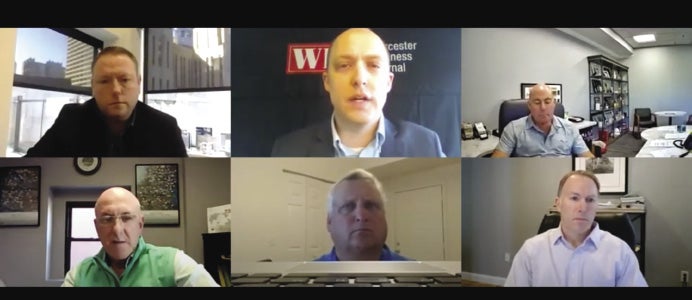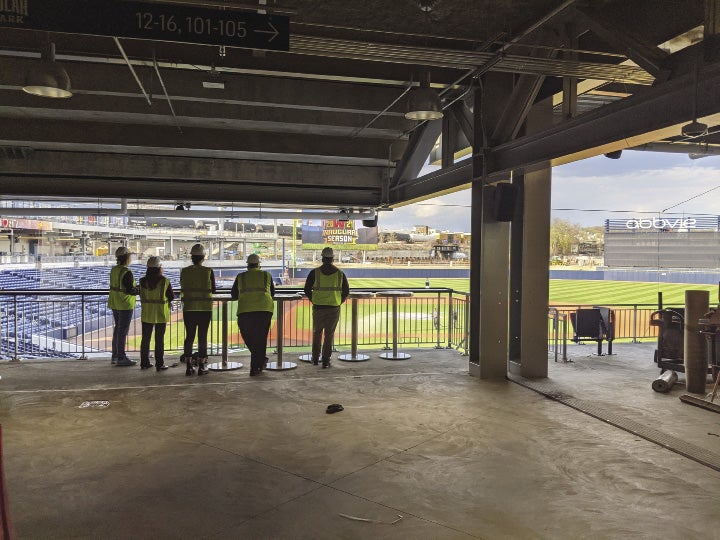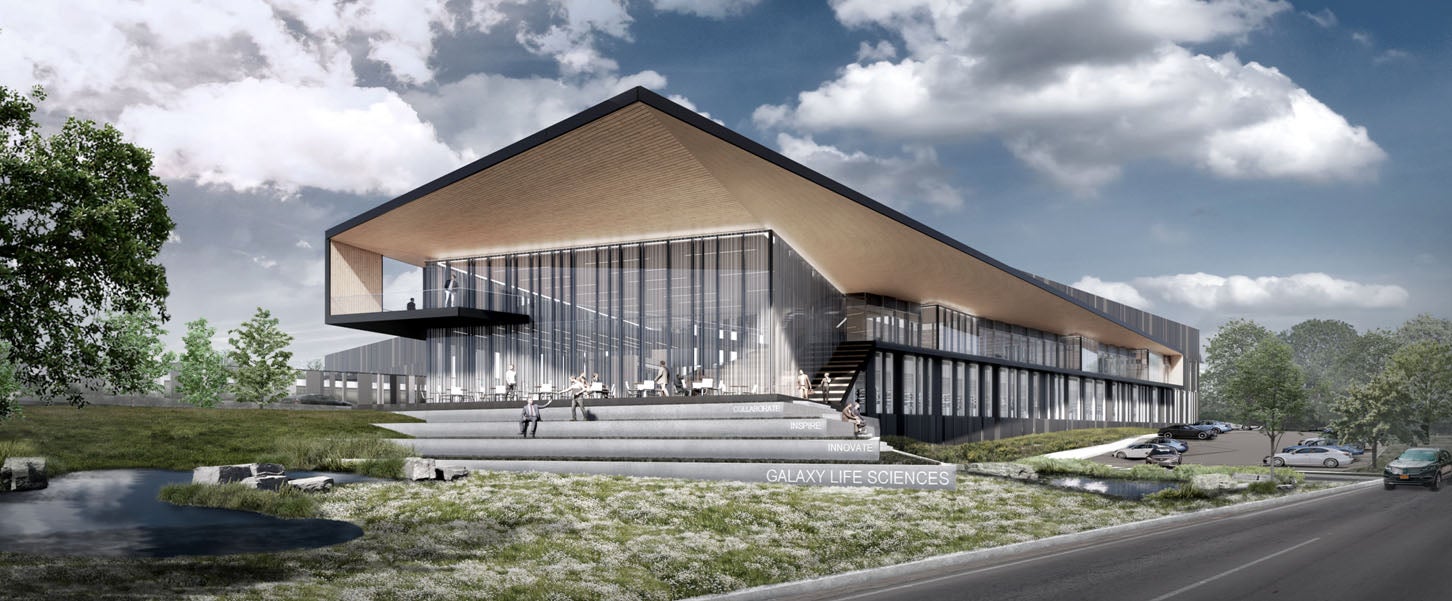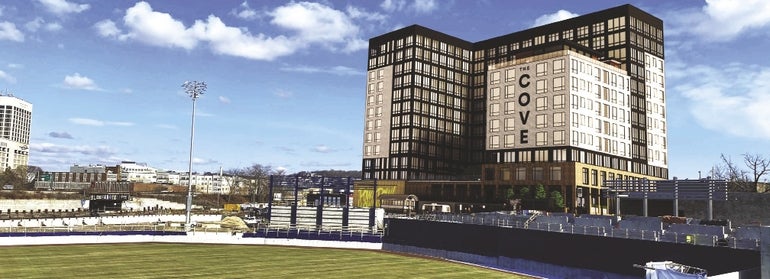As Worcester grows, so does its appeal to investors and developers.
Get Instant Access to This Article
Subscribe to Worcester Business Journal and get immediate access to all of our subscriber-only content and much more.
- Critical Central Massachusetts business news updated daily.
- Immediate access to all subscriber-only content on our website.
- Bi-weekly print or digital editions of our award-winning publication.
- Special bonus issues like the WBJ Book of Lists.
- Exclusive ticket prize draws for our in-person events.
Click here to purchase a paywall bypass link for this article.
As Worcester grows, so does its appeal to investors and developers.
“For the most part, I can’t ask for any more than a location like Worcester,” said Mark Nedelman, CEO of Biomere, a biomedical company with 100 employees on Union Street.
This idea for why it is important for the city to capitalize on Worcester’s progress in bringing in outside developers came during the third installment in the Worcester Emerging webinar series this spring from Worcester Business Journal and the State House News Service, describing the changes taken place in the second largest city in New England over the past half decade.
In the panel talking with developers who are in the midst of various Worcester projects, Grant Welker, the former news editor at Worcester Business Journal, moderated the panel featuring David Greaney, CEO of Synergy Investments in Boston; Rich Mazzocchi, managing director of Boston Capital Development LLC; Michael O’Brien, CEO and principal of Galaxy Development/Galaxy Life Sciences in Webster; James Umphrey, principal at Worcester commercial real estate firm Kelleher & Sadowsky Associates; and Nedelman.

Throughout the webinar, panelists talked with a lot of optimism about investing in Worcester whether it be in commercial office space, residential prospects, retail, or specific to the life sciences industry.
“The thing really adds to our attraction to Worcester is the momentum, particularly downtown with public investment and private investment,” said Mazzocchi, whose firm is building an affordable housing development in the Canal District.
Greaney, who is redeveloping Worcester’s tallest commercial building known as the glass tower, said the pandemic has certainly affected Synergy’s commercial development plans, but it is really just a pause.
“In a post-vaccination world when safety concerns have been addressed, we will see a significant return back to office. People need office. People need people,” Greaney said.
He continued to say Synergy has been able to build upon the great work and momentum created by the city government, the Worcester Regional Chamber of Commerce, and the business community in Worcester.
“What we hope to do is to partner with the business community, to partner with the various agencies, and really try to attract new companies to the downtown Worcester market,” Greaney said, “We need to also look outside the Worcester market and specifically into the Boston and Cambridge markets and say, ‘Hey, put Worcester on your tour.’”
Umphrey mimicked Greaney’s optimism about the future of office space in downtown.
“The pandemic has left a mark,” he said, “but Worcester is a driving city.”
One of the factors companies coming to Worcester and those already within the city look for is a strong workforce to draw from.
“Employers will go where employees will be happy to work,” said Greaney.
He said the factors making employees happy to work in Worcester are public safety, quality housing, arts and cultural scenes, and a dining scene.
In turn, Worcester’s growth and development as a city in recent years drew Synergy’s attention.
“We really were excited to see what was happening in downtown Worcester and that’s really what prompted our investment in the city,” said Greaney.
Mazzocchi and Boston Capital Developments are similarly optimistic about Worcester’s growth.
“We view Worcester with the momentum and the urban core as being an 18-hour city,” he said.

Residentially, there is also a lot of potential. Boston Capital Developments looks to first build affordable housing and then move to workforce and market-rate housing.
“With the continued momentum in Worcester, we see market-rate housing over the next several years as being something we can develop,” said Mazzocchi.
The high demand for apartment living also influenced investment, said Mazzocchi.
“There’s clearly not enough supply when you look across, whether it’s market-rate, workforce housing, or affordable,” he said.
The affordability in Worcester, especially in comparison to Boston, plays a large part in the city’s appeal to both employers and employees.
“One of the best things that allows us to recruit good talent is the affordability the area offers,” said Nedelman.
Not only does Worcester have an urban core that is attractive to younger generations, but it also has great momentum and is at a cost significantly discounted compared to Boston, said Mazzocchi.
“Cities like Boston have been priced incredibly expensively for development,” said Umphrey, “Worcester has been seen as a place of opportunity from a return on investment perspective.”
Moreover, the city is appealing to developers because of the way its leadership works, said O’Brien, who built the Trolley Yard retail complex and is developing the main site of the biomanufacturing campus The Reactory.
“There’s no question the city of Worcester is developer friendly. They’re anxious to work with you,” he said.

In turn, commercial and residential factors come together to create retail opportunities as the population of people living and working in Worcester grows over time.
O’Brien’s outlook on retail in Worcester further emphasized the other panelists’ optimism.
“Retail will follow the population,” he said, “so it’s not going to go anyway. I think that any portion of Worcester … it doesn’t matter, if the population is there, the retail is going to find it; and they're going to look to be around that, not only the residential but the daytime population.”
Worcester’s location, being an hour away from Boston, Providence, Hartford, Springfield, and Lowell, further adds to its appeal to both residents and employers.
“From a distribution perspective, whatever that may mean to an individual company, you are literally in the center of New England,” said Umphrey.
The growth of the life sciences industry in Worcester has enormously evolved and all of the benefits of the city spark optimism for Worcester’s growth as a major player in the industry, said Nedelman.
“In my mind, Worcester is the ideal location for a company like Biomere as well as a biopharmaceutical cluster,” he said.
Therefore, Worcester continues to be in a prime position to draw more companies from the life sciences industry.
“Worcester is slowly getting there, and the train is going to pick up speed,” said O’Brien. “That cluster is going to continue to build, get larger and larger, and it’s going to just help us to persuade more businesses to come into the Worcester community.”
But Worcester also appeals to businesses outside of the life sciences industry.
“In general, the environment in Worcester is very pro-business,” said Umphrey.
All of these factors lead to developer confidence and point to sustained and continued growth in investment in the city.
“There’s a strong level of optimism by developers,” said Umphrey, “and the market is there to support that type of development.”

